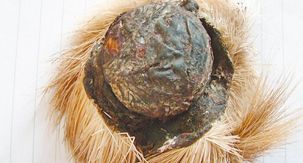Fragrance definition:
Natural Fragrance:
The ingredients of natural fragrance are made from raw plant ( and animal) materials without chemical processes and chemical components.
Semi-finished and finish natural fragrances can be divided into an essential oil, concrete, tincture, absolute, pomade, balsam, resin, resinoid and oleoresin, due to the different production methods (I will post an article about this in a few days)
Synthetic Fragrance:
Full synthetics: Nearly the entire fragrance is derived from petroleum by-products
Semi-synthetic: As the name suggests, the fragrance is only semi-synthetic; it can be created from some synthetic, natural, or artificially modified notes. Sometimes, it’s derived from all three
Natural isolates: A fragrance developed from synthetic and natural byproducts
Health and Fragrance:
Natural Fragrance is not as good as you think, and Synthetic Fragrance is not so bad.
1. Many articles and reports point out that synthetic fragrances contain toxic ingredients and are harmful to the human body, which is really a huge misunderstanding.
It is undeniable that some inferior products contain toxic ingredients, but this has nothing to do with the synthetic fragrance. The synthetic fragrance is healthy and non-toxic, but some irresponsible suppliers have added cheap toxic ingredients to the product. This can happen in any industry. People like healthy products, so do I, but healthy products don’t have to be natural. Many posts are intimidating marketing behaviors.
In most cases, natural products tend to be healthier than chemical products, but not in the fragrance industry.
2. When it comes to allergies, we need to understand the two main causes of allergies:
(1).Everyone may be naturally allergic to a certain substance, like milk, this is born and cannot be changed.
(2).The concentration and components of fragrance, natural fragrance are all taken from nature, you can’t use technical and chemical methods to change specific components to help you prevent allergies, except for dilution. Synthetic fragrances are artificially produced, so their concentration and components are operable and modifiable. If your products made by an acclaimed and reliable manufacturer, you don’t have to worry about it at all.
If you get allergy by products made of synthetic fragrance, there are 2 methods he can take, one is to dilute it and the other is to throw the low-quality products away.
Environment and Fragrance:
1. Natural fragrance is wonderful and elegant, which represents people’s pursuit of nature, but they need the environment to pay the price. For example, sandalwood fragrance extracted from sandalwood, which has almost extinct in many countries and has been rated as an endangered tree species in the world.
Maybe someone will propose that we can plant sandalwood trees artificially, but it grows extremely slowly, and it usually takes decades to grow into the wood.
Some fragrances extracted from animals. Musk is a more popular animal fragrance, which is the dry secretion of the musk deer’s male sachet. People hunt them for musk, and various musk animals have become an endangered species. You can imagine that as a long and painful process for animals.

musk deer

dry contents of deers male sachet
2. Synthetic fragrance replicates natural accords, without harming the environment. It’s this man-made process that can allow for the repopulation of forestry and the protection of animals.
Synthetic fragrance generally extracted from agriculture and forestry materials and coal, petrochemicals, or created in labs. They can be manufactured on a large scale through chemical and physical methods.
Stand in a scientific point, both of them are compounds composed of components, which are essentially the same.
The adv. and disad. of both when applied to perfume:
1. For instance, natural perfume has an average shelf life of 1-2 years (It depends on the temperature, humidity, light etc. of the storage environment). Synthetic perfumes can last up to 3-5 years.
2. Synthetic perfume don’t sour as quickly as natural perfumes, and the scents remain richer and denser in comparison when you open a new natural perfume, you have to save it very well to ensure that it does not deteriorate quickly like fruit.
3. The synthetic perfume contains fixatives that prevent volatile perfumes from rapidly evaporating. Most are comprised of resins, mosses, and substances from animals.
4. It is difficult to make a perfume using a variety of natural fragrance, so the scent of the natural fragrance is more pleasant but monotonous.
synthetic perfume can use more than 100 kinds of synthetic fragrance, so it can create more perfumes with unique personalities. The aroma is rich and layered, interpreting an abstract and charming design concept.
5. The synthetic fragrance has become the mainstream of the perfume market since about 100 years ago. Since then, almost all famous perfumes are basically inseparable from synthetic fragrances.
6. The price of natural perfume is much higher than synthetic perfume.
